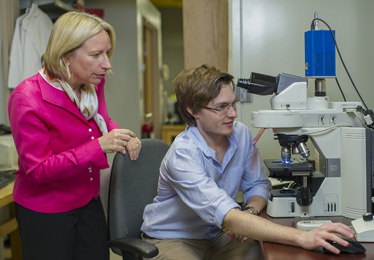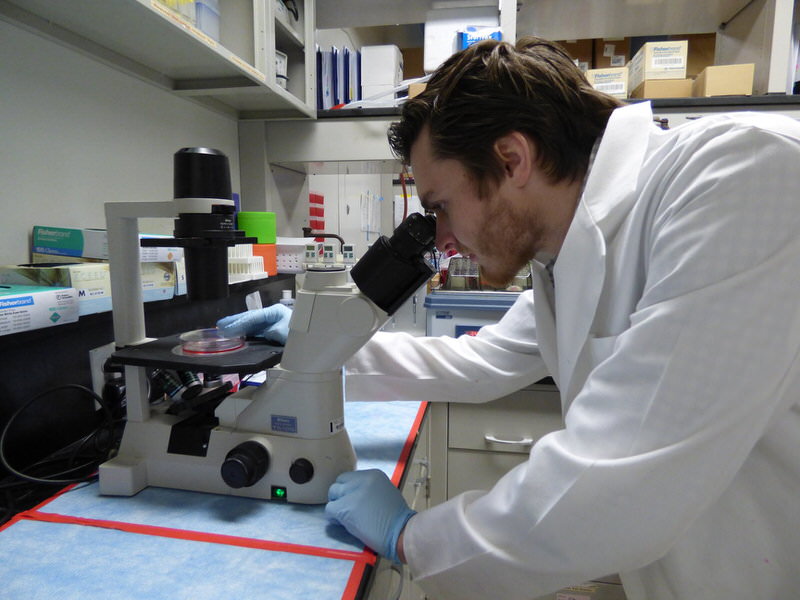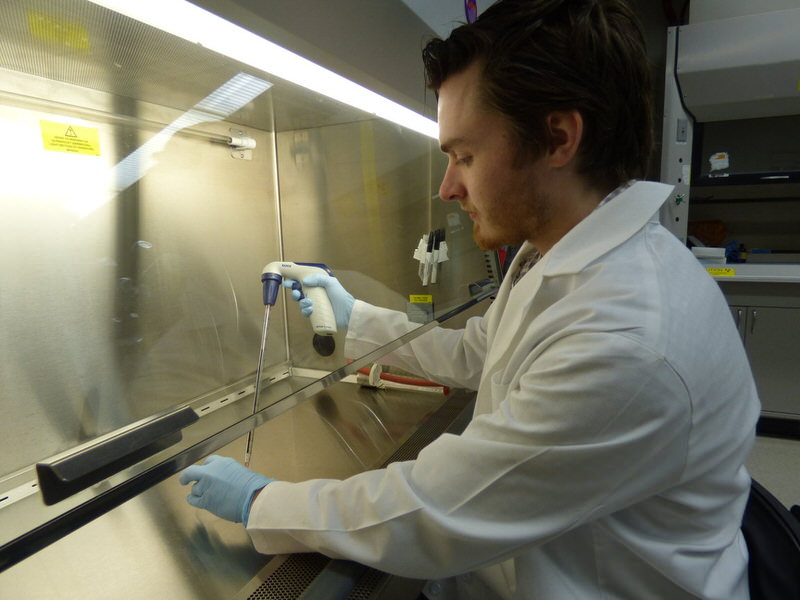D.D.S./Ph.D. Student Nick Dybdal-Hargreaves Aims to Help Patients with Oral Cancers

“Nick has the unique ability to see the big picture. It’s very rare in science let alone someone who is so junior in their career,” Dr. Susan Mooberry, professor of pharmacology.
The idea of seeing the big picture is key to Nick Dybdal-Hargreaves’s work as a D.D.S./Ph.D. student in the COSTAR Training Program.
His goal is to become a clinician scientist and to treat head/neck cancer patients both in the clinic and in the lab.
“The reason I am interested in being a clinician scientist is because seeing why it matters really motivates the scientific side even more,” Dybdal-Hargreaves said. “It helps place what you are doing in the lab in the real world. It’s so easy to be in your lab secluded from everyone else without realizing what you are doing really can transform patient care.”
He explained that a person he admires is Dr. Brian Schmidt who is a D.D.S., M.D., Ph.D. at New York University Medical Center.
 “His research is really fascinating to me because he has a large lab and he treats patients himself and as long as they consent, he’s able to take those samples immediately to the lab where he can take a look at those samples, identify molecular features which define this person’s cancer and take it into a mouse model and maybe see what drugs might interact with this cancer,” Dybdal-Hargreaves said.
“His research is really fascinating to me because he has a large lab and he treats patients himself and as long as they consent, he’s able to take those samples immediately to the lab where he can take a look at those samples, identify molecular features which define this person’s cancer and take it into a mouse model and maybe see what drugs might interact with this cancer,” Dybdal-Hargreaves said.
Currently, he is working in Dr. Mooberry’s lab where he is working on a project to understand why certain cancer drugs work or don’t work at a molecular level.
“We know more and more in cancer that it’s typically more effective to treat a patient with a cocktail of drugs so you can avoid acquired or innate resistances and try to get closer to a cure,” Dybdal-Hargreaves said. “Often the optimal combinations to use for each patient are not known, ideally we’d be able to look at a patient’s tumor and be able, based on the molecular profile, to identify the
most effective combination to use.”
 For him, the D.D.S./Ph.D. program gives him the training and ability to express his creativity.
For him, the D.D.S./Ph.D. program gives him the training and ability to express his creativity.
“I love playing piano and guitar so doing things with your hands is something I really enjoy so seeing a profession where you actively practice surgery and things with your hands daily resonates with me,” he said.
In December, Nick applied for a National Research Service Award (F30) which will enable him to work on a new project that will investigate oral cancer cell lines that are differently sensitive to drugs used in the clinic and try to understand why they are differently sensitive.
“Head and neck cancers are an understudied cancer. It’s increasing in occurrence and its prognosis hasn’t improved in the last 40 years so it’s an area that I really want to focus on specifically bringing more therapeutics for treatment to complement surgery and radiation therapy.”
He explained that the project he will be working on is important to advancing cancer care.
“It’s like doing a puzzle. You know that there is some best answer but you are not sure of what it is. You get these ideas of what it is and the lab is where you get to play and test if these pieces fit together,” he said. “At the end of the day, unlike a puzzle, you’ll never truly complete it but you’ll get a better picture of what it is. That I find really satisfying.”
This article is part of the “Meet The Researcher” series which showcases researchers at the Graduate School of Biomedical Sciences at University of Texas Health Science Center San Antonio.
